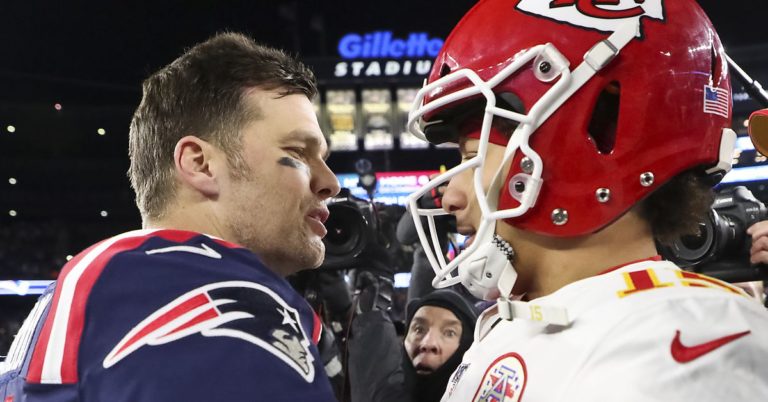

When I first came out as gay — and yeah, this was ancient times before Tom Brady had ever won a Super Bowl — there was a sense amongst many in our community that gay guys who said they liked sports were just putting on an act.
When I talked with friends and acquaintances about watching football or playing in a flag football league, I regularly heard other gay men throwing labels at me like “butch,” “masc” and “straight-acting.”
Guuuuurrrrrrl, how wrong they were.
Six Brady Super Bowl titles, 21 years of Outsports and a few Gay Bowl championships later… for me, my love of sports has never been an act.
Yet this past Sunday, watching the NFL Playoffs, an old trope surfaced again in a text message from a friend: “Football… so masc”
Ugh.
A crime against humanity? Hardly.
Yet I still recalled those days of being called “straight-acting” in the late Nineties, as though I were putting on an “act” by spending a Sunday at Jim’s house glued to a tough-to-watch Lions-Cardinals matchup. Jake “The Snake,” find me salvation!
Sports and being gay, for me, have always intertwined. Literally days after I came out to a friend for the first time, I was introduced to Jim Buzinski at LA Pride. He was working a booth recruiting people for the LA gay flag football group.
In Jim and the guys playing pickup football every Saturday, I found my identity as a gay man.
If anything, being gay has enhanced my appreciation for sports.
Yet some gay men still find the need to marginalize my sports fandom as “masc” or “butch.” It’s almost reflexive, without thought. There seems to be a need to dismiss it like some passing fad.
Beyond it being kinda dopey, I cringe at what these messages say to some guys who, like me all those years ago, are just looking for their place in the community. I definitely got the message in my 20s that I didn’t belong in the gay community. Today, a text like that gets a roll of my eyes, but for a lot of other guys, it stings.
Many gay and bi men feel already marginalized in a sports world that still centers too much on heterosexuality. To have our own LGBTQ community throw out these tired labels only exacerbates that.
We all know many of the traditional manifestations of “masculinity.” And yeah, the sports world has pushed a lot of money and effort into building an aura around sports that reflects that.
Yet I also know amazing people who absolutely love sports and turn those “masc” traditions on their head.
I think of drag queen diva Ms. Jackie Dupree, and winning a championship with her in the New York Gay Football League.
I think of Shanda Leer and Coco Baskets, other drag performers who embrace their love of sports.
Then there are the gay, bi and queer athletes who occasionally want to wear some nail polish or thoughtfully applied makeup. [Raises hand.]
The idea that someone has to have a certain personality to love football is so 1995.
For years, people have told me that one of the goals of Outsports is to undermine stereotypes of gay men. There’s a half-truth there. To be sure, we have wanted to show that gay, bi and queer men can love and embrace sports like anyone else.
Yet no one at Outsports has ever tried to define masculinity for anybody else. We’ve always maintained a full and wide embrace of fandom. You don’t have to throw a perfect spiral or cheer for an NFL team to be “masc.”
And if you do throw a perfect spiral, you can do it in heels any time you like.
I love watching football. I’ve loved playing the sport and I love officiating the sport. I love football.
I’ve also been known to wear eyeliner and listen to Offer Nissim. Speedos at the beach? I’d have it no other way. Crying during Titanic? Every time.
So please, gay, bi and queer men, you really don’t need to push some false label on me or other guys because we watch football. And who knows, if you give it a try, maybe it’ll turn out better than that Will & Grace reboot.
Either way, we’ll see you at the (socially distant) nacho bar on Super Bowl Sunday.